By Emmanuel Onwubiko
From a recent scientific journal, some researchers stated that physical disability is defined as a “limitation on a person’s physical functioning, mobility, dexterity or stamina” that has a ‘substantial’ and ‘long-term’ negative effect on an individual’s ability to do normal daily activities. (Equality Act,2010).
Join our WhatsApp ChannelHowever, the effects of physical disability on a person’s experience of life and learning varies even for children with the same diagnosis or condition.
For some the influence of their physical impairment may be mild, whilst for others, the effect may be profound impacting on every aspect of development. For others, their disability may be hidden, such as arthritis, or very evident necessitating a range of individual equipment and assistance from others.
Others may have degenerative conditions or their symptoms may fluctuate across the day. Some children and young people will have additional difficulties which could include visual or hearing impairment, autistic spectrum conditions, epilepsy or additional medical, communication or learning needs.
Every child or young person with physical disability is unique, but their physical needs are generally likely to come from:
* physical, metabolic or neurological causes, e.g. Cerebral palsy or achondroplasia
* degenerative conditions, e.g. Duchenne muscular dystrophy
* severe trauma, e.g. as a result of an accident, amputation or serious illness
* chromosomal disorder, e.g. Turner syndrome, TUBB4A or Ehlers-Danlos syndrome
* acquired brain injury (ABI)
* muscular skeletal conditions
* birth trauma and prematurity
* upper limb differences affecting hand function and fine motor movement
* lower limb differences affecting mobility
* complex medical needs which impact on physical function
* persistent symptoms affecting mobility and physical function, although there is no diagnosis
Whilst every individual is affected by their unique physical needs in a different way children and young people with a physical disability may often have difficulty in:
* accessing the physical environment
* using equipment and facilities safely
* taking part in learning tasks and assessments
* doing practical tasks and activities, e.g. food technology
* recording ideas and thoughts legibly or to time
* achieving independent work
* developing self-care skills
* communicating with others
* managing fatigue and pain
* interacting socially
* processing and regulating sensory information
* developing positive social emotional mental health (SEMH) & wellbeing.
However, Theogony a philosophically profound poem stated rightly that “there is ability in every disability.” This outstanding aphorism has been proven right in Nigerian disable athletes who went to the Paris Paralympic Games and made Nigeria proud by winning many laurels as against their able bodied counterparts who performed woefully at the Paris Olympics 2024 that preceeded the Paralympic.
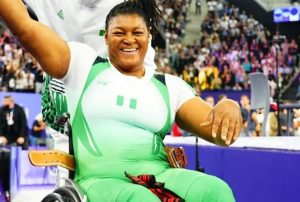
There is therefore the need to put up this piece is to call on the government to honour these Paralympians who just made us proud at the just concluded Paralympic Games in Paris France.
Our submission stems from the fact that in a country like Nigeria, where sports have long been a source of national pride, one would expect all athletes—regardless of their physical ability—would receive equal recognition for their hard work, perseverance, and success. Unfortunately, this is not the case for our Paralympians. Despite their extraordinary achievements, these athletes remain largely unsung, uncelebrated, and underappreciated. The applause for their efforts is not nearly as loud as it should be, raising the question: Where’s the recognition for Nigeria’s Paralympic champions?
Nigeria’s involvement with the Paralympic Games began in 1992, when the country first participated in the Summer Paralympics in Barcelona, Spain. Since then, Nigerian Paralympians have consistently surpassed expectations, bringing home an impressive array of medals—often outshining their able-bodied counterparts.
At the 2016 Rio Paralympic Games, Nigeria secured 12 medals, including eight gold, placing 17th on the medal table. In contrast, Nigeria’s able-bodied athletes at the same year’s Olympics managed only a single bronze medal. This stark contrast should have highlighted the exceptional success of our Paralympians, yet the response has been disappointingly muted.
The issue extends beyond mere sports performance. There is systemic neglect of people with disabilities in Nigerian society, which inevitably impacts the sporting world. Infrastructure to support disabled athletes is woefully inadequate, from poorly equipped training facilities to a lack of financial backing.
In many cases, Paralympians are left to train under suboptimal conditions, sometimes using makeshift equipment or paying out of their own pockets for necessary gear. Despite these challenges, they continue to compete at the highest levels, often dominating their events with sheer determination and passion.
Following the recently concluded Paris 2024 Paralympic Games, Nigeria’s Paralympians once again delivered a remarkable performance. They brought home two gold, three silver, and two bronze medals. Nigeria was placed 40th on the medal table showcasing their grit, determination, and spirit. Yet, despite their outstanding achievements, there has been a deafening silence from the nation’s leadership and the public.
These athletes accomplished what many of their able-bodied counterparts could not in the same Paris, yet their triumphs have largely gone uncelebrated. This situation calls for a deeper reflection on how Nigeria views and values its athletes—especially those who represent the country on the international stage.
The Nigerian Paralympians’ performance in Paris was nothing short of extraordinary. Athletes like Folashade Oluwafemiayo, Onyinyechi Mark, and Esther Nworgu shattered world records, lifted unimaginable weights, and did so while competing against the best in the world. Folashade’s lift of 167kg not only broke her previous world record but also cemented her status as a two-time Paralympic champion. Mark’s lift of 150kg in the women’s 61kg category left spectators in awe as she secured yet another gold for Nigeria.
READ ALSO:Team Nigeria finishes 40th As Paralympic Games Ends In Paris
But where is the applause? Where is the national celebration for these athletes who have brought so much pride to the country? After the able-bodied athletes returned empty-handed from the Olympics, there was an outpouring of disappointment and criticism from both the media and the public.
The same energy, however, has not been directed towards recognizing the achievements of the Paralympic athletes. Olympic medals—whether won by able-bodied or differently-abled athletes—carry the same weight, honor, and pride. Yet, our Paralympians, who outperformed many, seem to be forgotten.
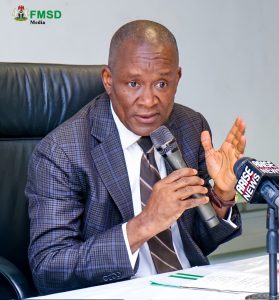
While it is commendable that President Bola Tinubu approved allowances for the Paralympians and Minister of Sports John Owan Enoh ensured their prompt payment as confirmed by the Secretary General of the Nigeria Rowing Canoe and Sailing Federation, Olubunmi Ola-Oluode, the question remains: What next? Where is the presidential recognition? A statement of thanks, a national commendation, or even a symbolic presidential handshake would go a long way in appreciating these athletes. They eased the nation’s disappointment with the Olympics with their success, yet they have not been accorded the respect and gratitude they deserve.
In contrast, when the able-bodied athletes returned from the Olympics with nothing to show, there was national mourning, criticism, and calls for reforms. The President and other key figures in sports management quickly acknowledged the Olympic disappointment. So why the silence now that our Paralympians have brought glory to the country? It’s almost as if their achievements don’t matter as much—a sentiment that must change.
While there have been some instances of financial rewards and honors for the Paralympic athletes, recognition is more than just a pat on the back or a mention in the news. It’s about valuing the dedication, discipline, and hard work that these athletes put into their craft, just like any other athlete.
The Paralympians’ journey to success was fraught with difficulties. Despite minimal support and facilities available to them in Nigeria, they trained relentlessly, often in subpar conditions. Many of these athletes are based in Nigeria, with limited access to world-class training facilities, unlike their Olympic counterparts who train in Europe or the United States. Yet, they competed against the best in Paris and returned with medals.
This speaks volumes about the resilience of these athletes. They didn’t win because the competition was any easier for them. They won because they worked for it—through sheer willpower, dedication, and hard work. Winning an Olympic medal, whether in the able-bodied or Paralympic category, is no small feat. It requires intense training, focus, and discipline—qualities that our Paralympians have in abundance.
In the aftermath of the able-bodied Olympic athletes’ poor showing, there were calls to sack the Minister of Sports, John Owan Enoh. Now, the same minister has overseen a campaign where Nigeria’s Paralympians performed admirably, yet those same critics have fallen silent. This reflects the inconsistency and hypocrisy that plague Nigeria’s sports discourse. When things go wrong, blame is quickly assigned, but when triumphs occur, credit is often overlooked.
Minister Enoh deserves commendation for his hands-on approach in Paris. He was there with both the Olympic and Paralympic teams, ensuring that the athletes’ needs were met. Under his watch, the Paralympians performed exceptionally well, and he ensured their allowances were paid promptly. Yet, his efforts are not being recognized. Instead, the focus remains on the failures of the able-bodied athletes, neglecting the success story of the Paralympians.
These athletes didn’t just win medals—they lifted the nation’s spirits. In a country where disability often leads to marginalisation, our Paralympians have demonstrated that ability exists in disability. They have shown they are as capable, if not more so, than their able-bodied counterparts. The least the country can do is to recognise their efforts at the highest level.
A presidential recognition would significantly acknowledge their contributions. It would send a message that Nigeria values all its athletes, regardless of their physical abilities. A simple presidential handshake, a medal ceremony, or a national broadcast acknowledging their achievements would mean the world to these athletes who have given everything for the country. It’s not just about the money or allowances—it’s about recognition, respect, and appreciation.
As we celebrate the Paralympians, it’s also time to plan for the future. Nigeria must invest more in sports development, not just for able-bodied athletes, but for Paralympians as well. These athletes have proven that with the right support and resources, they can compete and win at the highest levels.
Addressing the disparity in funding between able-bodied and Paralympic athletes is crucial. While able-bodied athletes often receive more resources and attention, it is the Paralympians who have consistently delivered medals for Nigeria. The government must correct this imbalance and ensure that Paralympic athletes receive the same level of support, both financially and in terms of training facilities, as their able-bodied counterparts.
Inadequate corporate sponsorship and media coverage are other areas where change is urgently needed, compared to able-bodied athletes. While companies quickly endorse able-bodied athletes with lucrative deals, Paralympians often struggle to find similar support. The media also gives minimal attention to Paralympic achievements, with their successes often treated as minor news compared to the extensive coverage and celebrations given to Olympic victories. This lack of recognition and support underscores the need for greater acknowledgment and investment in Nigeria’s Paralympic athletes.
The performance of the Nigerian Paralympians at Paris 2024 is a moment of national pride. These athletes have shown what is possible with hard work, dedication, and belief. They have demonstrated that Nigeria has the talent to excel on the global stage.
As a country, we must do more than acknowledge their success—we must celebrate it. We must challenge ourselves to ensure they receive the recognition and respect they deserve. As we look towards the next Olympics, let this moment remind us of the greatness achievable when we believe in our athletes, regardless of their physical abilities. Let it be a call to action for the President, the Minister of Sports, and all Nigerians to recognise and honour these athletes for their incredible achievements. They have transformed the nation’s disappointment into pride. Now, it’s time for the country to return the favor.
Emmanuel Onwubiko is head of the Human Rights Writers Association of Nigeria and was National Commissioner of the National Human Rights Commission of Nigeria.

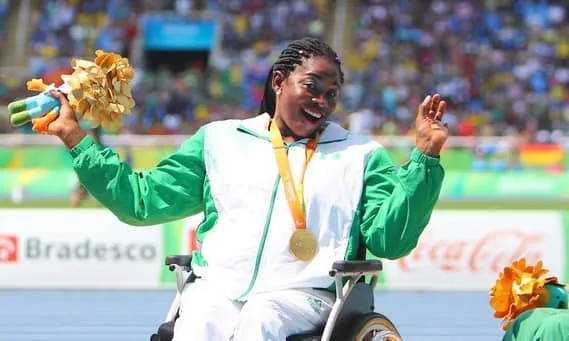



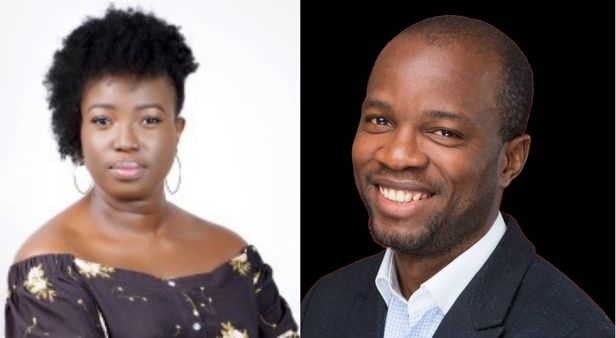
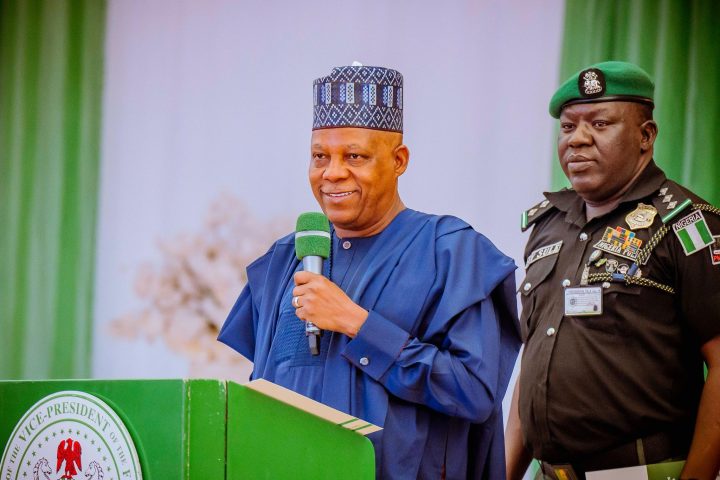









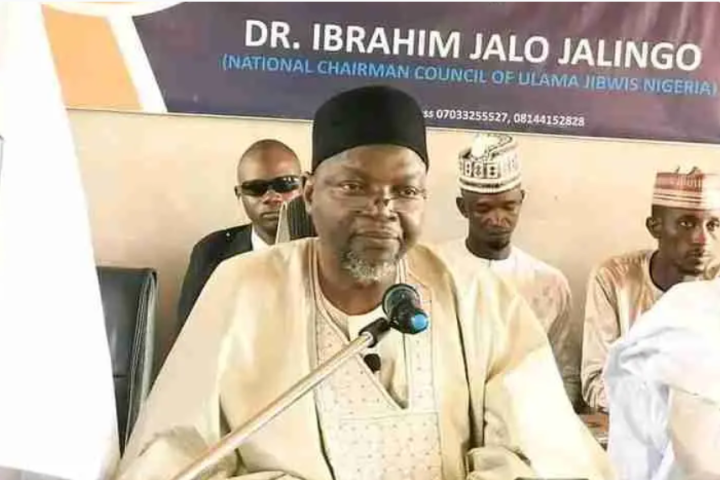
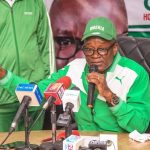
Follow Us